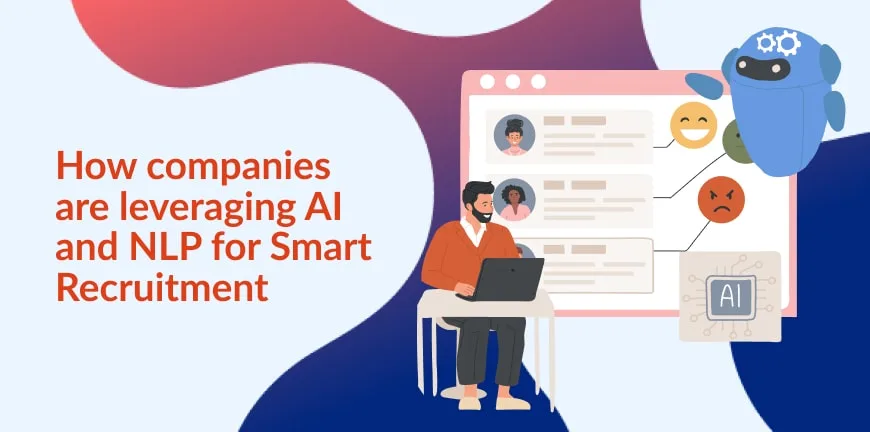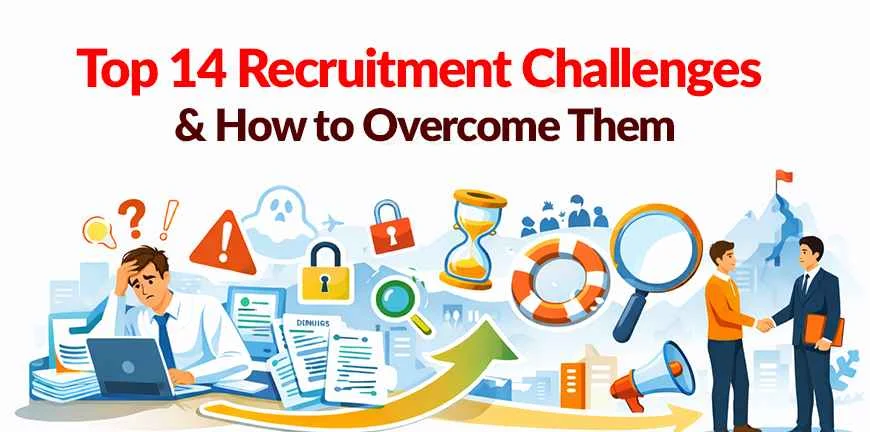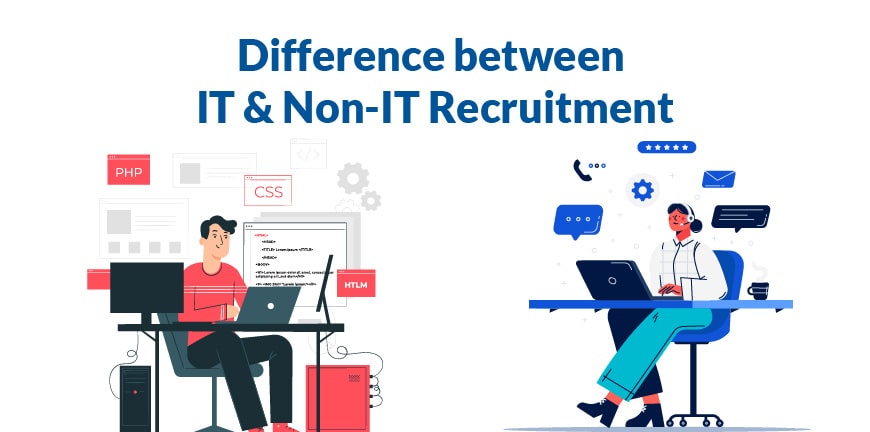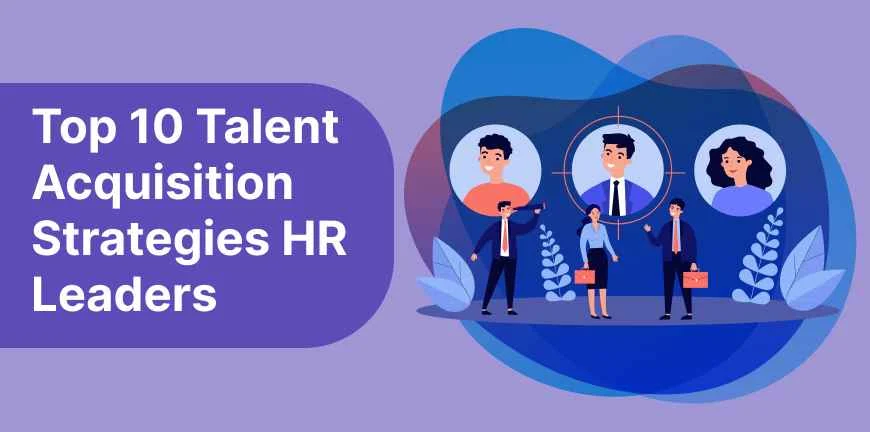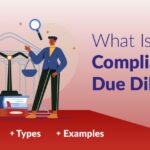
What is Compliance Due Diligence? Definition, Types, Benefits, Process, Examples
08/04/2025
Tamil Nadu Labour Law Compliance Checklist
09/04/2025Albert Einstein once remarked, “It has become appallingly obvious that our technology has exceeded our humanity.” Well, this sentiment rings a bell in today’s world, where technology profoundly shapes every facet of our lives. Industries have been highly driven by technologies and will rely on them in the future as well as with the changing scenarios. The recruitment landscape is also evolving, with Artificial Intelligence (AI) and Natural Language Processing (NLP) at the forefront of this dynamic shift.
Companies are increasingly mobilizing these cutting-edge technologies to streamline and supercharge their recruitment processes. By eliminating biases, accelerating the candidate experience, and making data-driven, smarter decisions, companies are adopting innovative technologies. Let’s explore how AI and NLP are revolutionizing hiring and enabling businesses to build smarter, more efficient recruitment strategies.
1. Candidate Sourcing
Sourcing of candidates is one of the first stages of recruitment and it can be time-consuming and resource intensive. With the advent AI-driven this process has been revolutionized as the tools enable automating the search for potential candidates. Now several recruitment platforms can scan multiple online sources with AI. From job boards, and social media to professional networks like LinkedIn, AI can help identify quality talent.
NLP plays a vital role in candidate sourcing enabling the system to construe resumes, job descriptions, and even social media profiles. These tools are advanced and can match the keywords and phrases in candidates’ profiles with the requirements listed in job postings. The result is unwavering and faster presenting with candidates who are genuinely well-suited to the role.
2. Screening Resumes
In the past, reviewing resumes has been one of the most time-consuming tasks in recruitment. Recruiters had to sift through many resumes to find the suitable candidates. AI-activated resume screening tools are here now, and they can cut down the time significantly by assessing resumes with the help of machine learning algorithms to filter and rank applicants based on relevant skills, qualifications, experience, and soft skills.
Interestingly, Natural Language Processing (NLP) accelerates this process by permitting the system to “read” and interpret resumes the same way a human recruiter would. NLP performs a lot of functions like not just keywords, but also context, comprehending whether a candidate’s experience aligns with the job description. It can also identify missing information, flagging incomplete applications, and other discrepancies or inconsistencies.
3. Reducing Bias
The recruitment industry has the issue of unconscious bias which is essentially unintentional judgments and stereotypes that can affect the diversity and fairness of hiring decisions significantly. AI and NLP can diminish bias by concentrating on data and qualifications rather than personal details.
AI-powered systems can evaluate candidates based on their skills and experience alone eliminating irrelevant factors leading to discrimination. NLP has a specific role here. It scans the language used in job descriptions and applications, ensuring that the language is neutral and inclusive, avoiding gendered or biased terminology tools can be crafted to monitor and flag any bias patterns in hiring practices. This enables the procedure to be more diverse and inclusive.
4. Candidate Engagement
Maintaining candidate engagement throughout the hiring process is a significant challenge. AI-powered chatbots, often enhanced with NLP, have become pivotal in improving the candidate experience. These smart assistants can 24/7 respond to candidates’ queries about the application process, job responsibilities, company culture, and benefits. This proactive approach helps keep candidates hooked.
The chatbots are self-sufficient and they can schedule interviews, follow up with candidates and provide feedback. The candidates feel comfortable as the NLP enabled chatbots understand and respond like a human making the process more personal than robotic. This continuous interaction keeps candidates engaged creating a positive experience for them.
5. Predictive Analytics
Diving into a vast sea of data and analyzing them can be a tedious task. AI is ensuring that the lives of recruiters will be easier. The AI systems can analyze data from past recruitment campaigns and forecast the chances of a candidate’s success in a specific role based on elements like experience, education, skills and previous performance in similar positions.
Ai is transforming how recruiters and hiring managers are deciding with the help of predictive insights.
NLP algorithms also are important here in assessing how well a candidate might fit into the company’s culture by evaluating the language they communicate in and not just their qualifications. AI recognizes patterns in how candidates talk about their values, work ethics, and interpersonal skills, driving recruiters to determine if the candidate will align with the company’s goals, culture, etc.
6. Video Interviews
The rise of remote work has led to video interviews becoming a common step in the recruitment process. AI-powered tools can now analyze video interviews by assessing both verbal and non-verbal cues. NLP works on the language used by candidates and on the other hand machine learning algorithms evaluate tone, emotion, and body language.
This technology enables recruiters to delve into a candidate’s communication skills, confidence, and behavior, which is also as important as their technical qualifications. AI can rank candidates based on these factors providing additional data to recruiters helping them make better decisions.
7. Improved JDs
The first impression that a candidate gets about an organization is by reading the job description and it is the first point of contact. A shabbily written, complex or biased job description can shew away potential candidates or draw an inappropriate pool of applicants. NLP tools are now being leveraged by recruiters to optimize job descriptions, making them crisp clear and bias-free.
The text can be analyzed by NLP ensuring that it entails the correct keywords for search engines. NLP can also provide suggestions regarding the description and can suggest being more inclusive or appealing to a vast range of candidates. The quality of the applicant too is enhanced along with the brand image of a company.
8. Continuous Learning
The recruitment world is undergoing constant transformation and is full of surprises. This world needs assistants like AI to deal with the changes and keep up. with them. AI systems can polish their algorithms over time by continuously learning from new data and being effective at envisioning the success of candidates, enhancing the quality of job matches, and optimizing the overall recruitment process. AI offers insights that can help recruiters refine their hiring strategies.
9. Future of Recruitment
This is the era of staying competitive and staying ahead of the curve. AI and NLP tools are revolutionizing recruitment in this era from the traditional and time-consuming manual procedure to this data-driven, efficient, and unbiased system. The new technologies are changing the landscape and turning heads around.
Processes like candidate sourcing and screening to enhance engagement can be automated accelerating hiring decisions and recruitment efficiency. However, the landscape is ready to compliment not replace human intuition and judgment.
The harmonious amalgamation of advanced technology and human expertise constitutes the future of recruitment establishing that organizations along with hiring quality talents also focus on fostering a more inclusive and engaging hiring experience.
Contact Us For Business Enquiry

Amit Saproo
Amit Saproo is the Head of Operations at ALP Consulting with nearly 17 years of experience in Executive Search, RPO, Leadership, and IT & Engineering recruitment. He leads nationwide recruitment programs across Technology, BFSI, and R&D domains, driving strategic hiring solutions for diverse client needs. Amit excels in building and managing high-performance teams that deliver scalable, end-to-end recruitment and consulting services.

